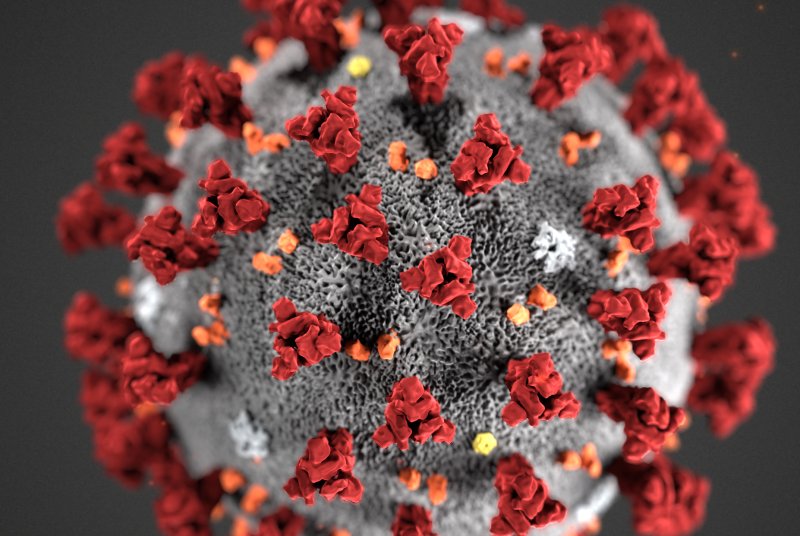GI symptoms experienced by some with COVID-19 may help drive virus spread, a new analysis has found. Illustration courtesy of CDC
June 11 (UPI) -- More than one of every 10 people with COVID-19 develop diarrhea, nausea or vomiting, and these symptoms may be a key driver of disease spread, an analysis published Thursday by JAMA Network Open says.
While just 12 percent of patients infected with the new coronavirus, SARS-CoV-2, experiences these gastrointestinal symptoms, more than 40 percent of them shed virus -- meaning, they're contagious -- via feces, the researchers said.
The findings are based on an analysis of data from 29 studies of COVID-19, the disease caused by SARS-CoV-2, according to the researchers.
"GI symptoms -- especially diarrhea -- could be common in patients who might be infected with SARS-CoV2," co-author Sravanthi Parasa, a gastroenterologist at Swedish Medical Center in Seattle, told UPI.
"Given that SARS-CoV2 viral shedding is noted in the stools among patients [with confirmed infection], extra precautions and hygiene should be maintained," Parasa said.
Although the primary symptoms of COVID-19 are cough, fever and breathing problems, diarrhea also has been commonly reported among some patients since the early stages of the pandemic in China. It also is among the symptoms listed on the U.S. Center for Disease Control and Prevention's coronavirus self-checker.
For the analysis, Parasa and her colleagues reviewed data from nearly 1,500 studies of COVID-19, focusing on results from 29 with data on GI symptoms. The included studies enrolled a total of 4,805 participants, they said.
Overall, 7.4 percent of the participants in the 29 studies reported diarrhea and 4.6 percent experienced nausea or vomiting, the researchers found.
Eight of those studies reported fecal tests that were positive for SARS-CoV-2, with viral shedding -- a measure of contagion -- detected in feces in 40.5 percent of enrolled patients, they said.
The presence of SARS-CoV-2 in stool samples may be an indication that "more stringent public health measures" -- including changes in wastewater and sewage management and restrictions on the use of public restrooms -- might be needed to contain the outbreak, Parasa said.
In addition, those "with symptoms of nausea and/or vomiting in conjunction with systemic symptoms like body aches, fevers, etc., should [contact] their healthcare provider for further testing," she said.















